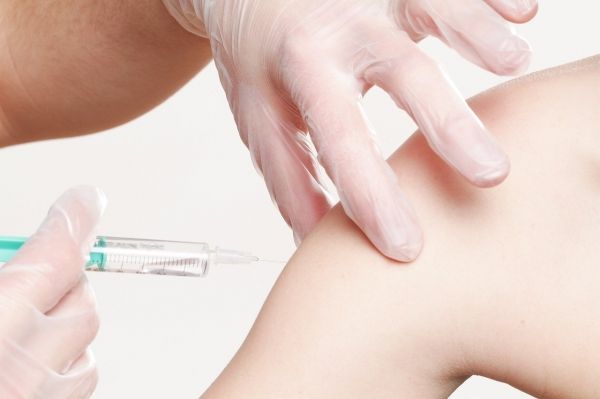A paper published by Paul Fidel, Jr., PhD, Professor and Director of the Center of Excellence in Oral and Craniofacial Biology and Associate Dean for Research at LSU Health New Orleans School of Dentistry, and Mairi Noverr, PhD, Professor of Microbiology & Immunology at Tulane University School of Medicine in New Orleans, suggests that live attenuated vaccines such as MMR (measles, mumps and rubella) may prevent the severe lung inflammation and sepsis associated with COVID-19 infection. The paper was published online in mBio, available here.
Increasing evidence demonstrates that live attenuated vaccines can activate nonspecific immune cells to train leukocytes (the white blood cells of the immune system) to mount a more effective defense against unrelated infections. The researchers demonstrated in a laboratory that vaccination with a live attenuated fungal strain generated trained innate protection against lethal sepsis (blood poisoning) caused by a combination of disease-causing fungi and bacteria.
The authors propose that the protection from an unrelated live attenuated vaccine is produced by long-lived myeloid-derived suppressor cells (MDSCs) previously reported to inhibit septic inflammation and mortality in several experimental models. They stress that this live attenuated MMR vaccine concept is NOT in any way suggested to be directed against COVID-19, but instead an immune preventive measure against the severe inflammatory symptoms of COVID-19.
“The use of childhood live attenuated vaccines such as MMR given to adults to induce bystander cells that can dampen or reduce severe complications associated with COVID-19 infection is a low risk – high reward preventive measure during a critical period of the pandemic,” notes Dr. Fidel. “These bystander cells are long-lived but not life-long. Anyone who had an MMR vaccination as a child, while likely to still have immune antibodies directed against measles, mumps, or rubella, will not likely still have the immune cells directed against sepsis. So, it could be important to get the MMR vaccination as an adult to protect better against COVID-related sepsis.”
Read more at Louisiana State University Health Sciences Center
Photo Credit: whitesession via Pixabay


